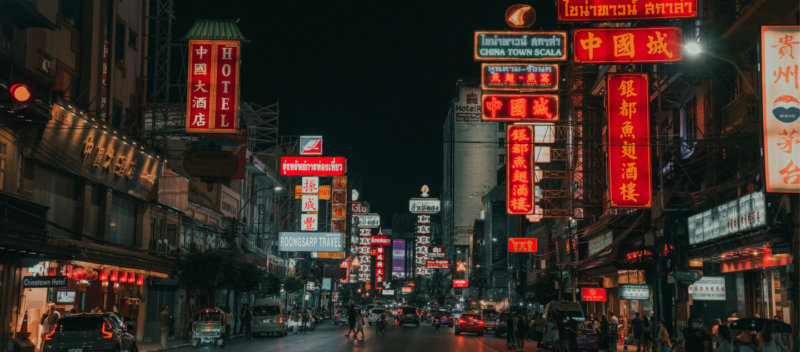

Just a short drive west of Bangkok lies a tranquil paradise. Suan Sampran is a family-run eco-cultural destination set across 50 acres on the banks on the Ta Chine River in Nakhon Pathom. His grandparents started it 57 years ago and now Arrut runs the show, having revolutionised the system when he took over. He studied chemical engineering at Imperial College in London University and came back to work in Bangkok in 1992. With an interest in health and a desire to make a difference, which wasn’t being fulfilled by various jobs in Bangkok, he returned to the family business in 2005 with a grand vision to pioneer organic farming in Thailand. Since then, he and his brother have developed the “Sampran Model”, an inclusive business system based on partnership and fair trade. Nowadays, not only does Suan Sampran grow rice, fruit, vegetables, herbs and mon roses, they’re certified organic by IFOAM, EU and COR. They’ve also developed relationships with local farmers to empower them to convert their operations to organic. Best of all (for us, at least), Arrut and his expert team will be in charge of the organic garden at ASAI Bangkok Chinatown, bringing know-how and delicious organic produce right into the city.
So, let’s find out a bit more about organic farming from the expert.
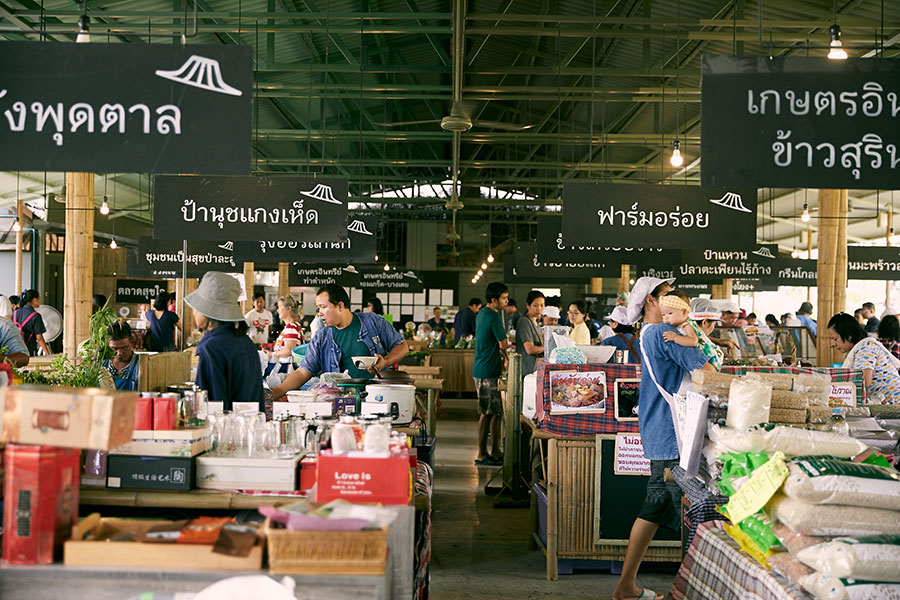
I have always been interested in holistic health. When I was at school back in the UK, I liked to go running and stuff, so when I came back to Thailand, I thought a healthy angle could be a good selling point for our hotel. In 2010, my brother and I started to contact local farmers to supply our hotel and restaurant with organic fruits, vegetables and rice. Since then, we’ve been encouraging other farmers around the country to convert from conventional to organic methods and linking them with hotels and restaurants to create partnerships. They supply directly, do production planning together and often, the hotels and restaurants bring their clients to visit the farmers. The project is about linking the whole value chain, from farmers and producers to hotels and restaurants and ultimately to the guests and customers, to create a more sustainable food system.
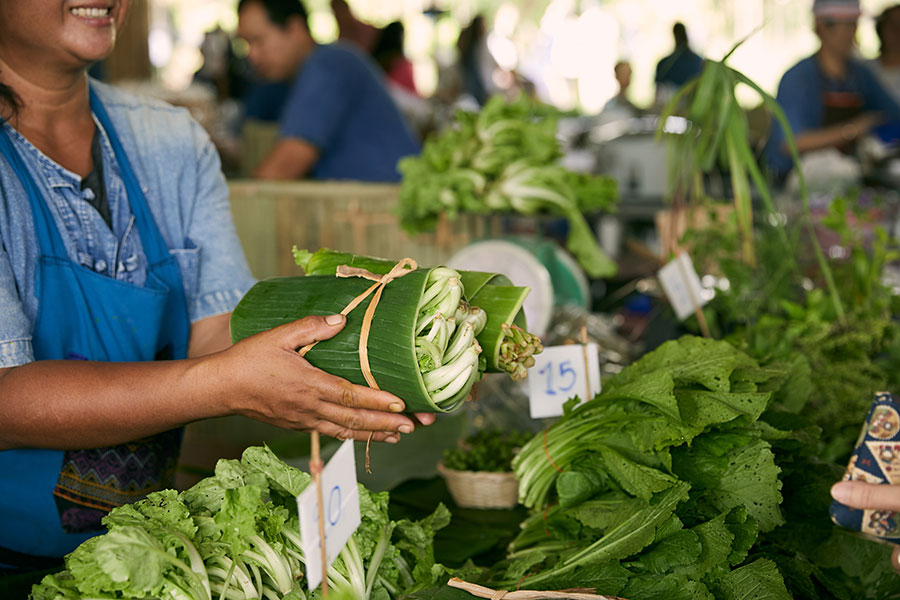
It’s better for their health, as well as for the consumers’, it’s better for the environment and they make more money because of higher selling prices and lower production costs in the long run. Organic farming doesn’t depend on agrichemicals from the petroleum industry but on raw materials like manure, which is naturally produced and doesn’t need to be transported.
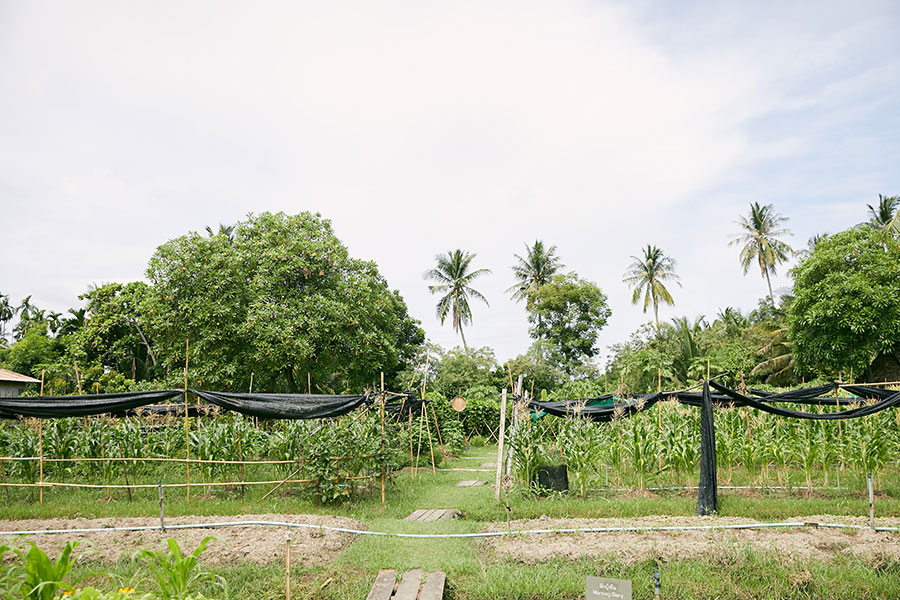
We grow according to the seasons and use herbs and biocontrols. Organic farming is all about understanding the natural cycles of your farm and keeping the ecosystem in balance.
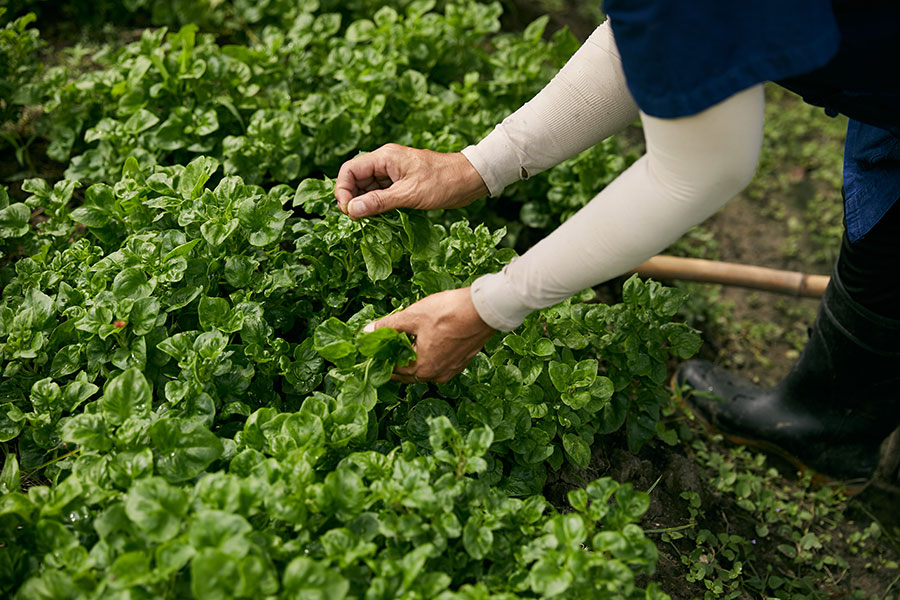
Natural pesticides don’t upset the balance of the ecosystem of your farm. It’s less about killing the pests and more about understanding how to avoid having them in the first place. So when we talk about natural pesticides, we’re thinking about prevention rather than cure.
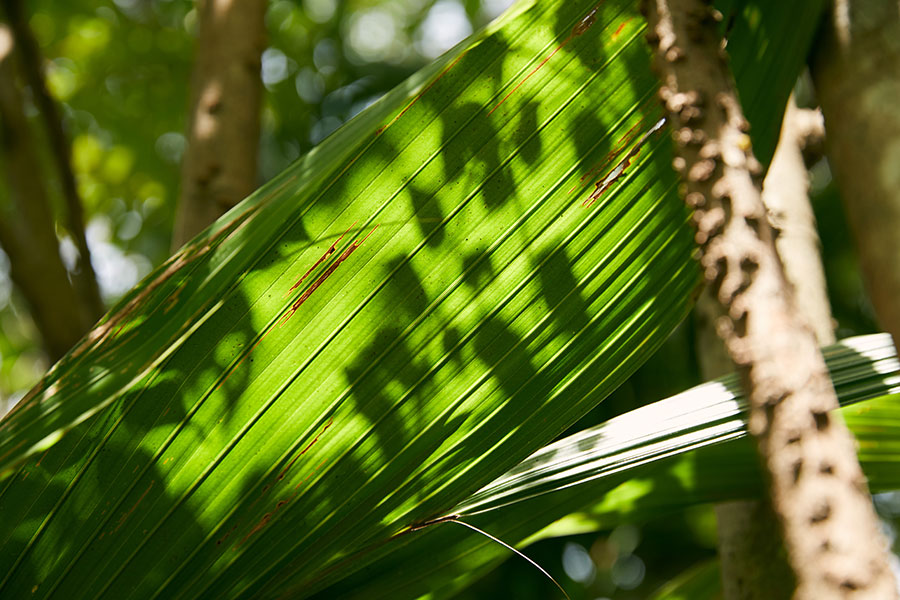
No, organic farming doesn’t emit more carbon dioxide from a system perspective. In fact, there’s research by IFOAM that suggests that organic agriculture is carbon positive. Meanwhile, conventional agriculture in Thailand depends heavily on imported agrichemicals, which produces a huge carbon footprint.
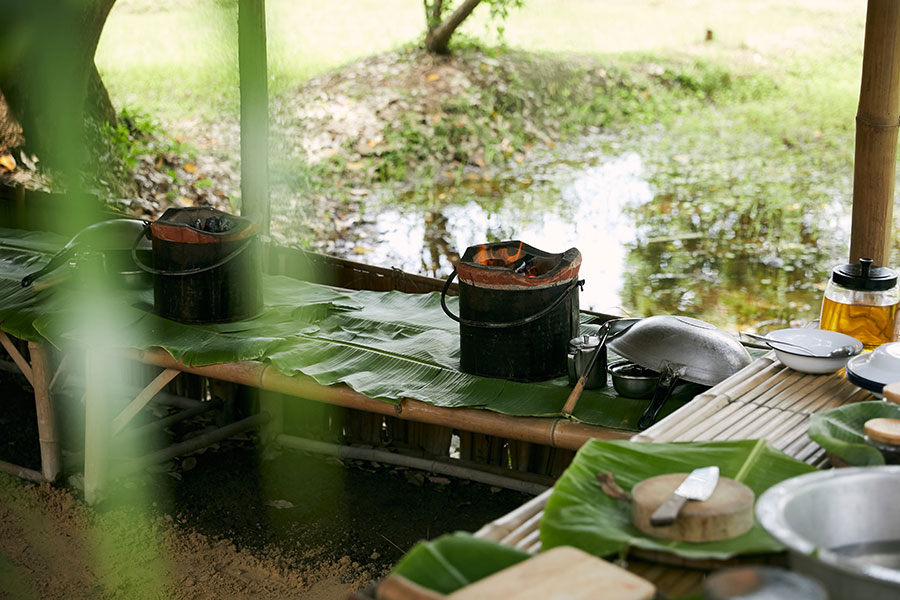
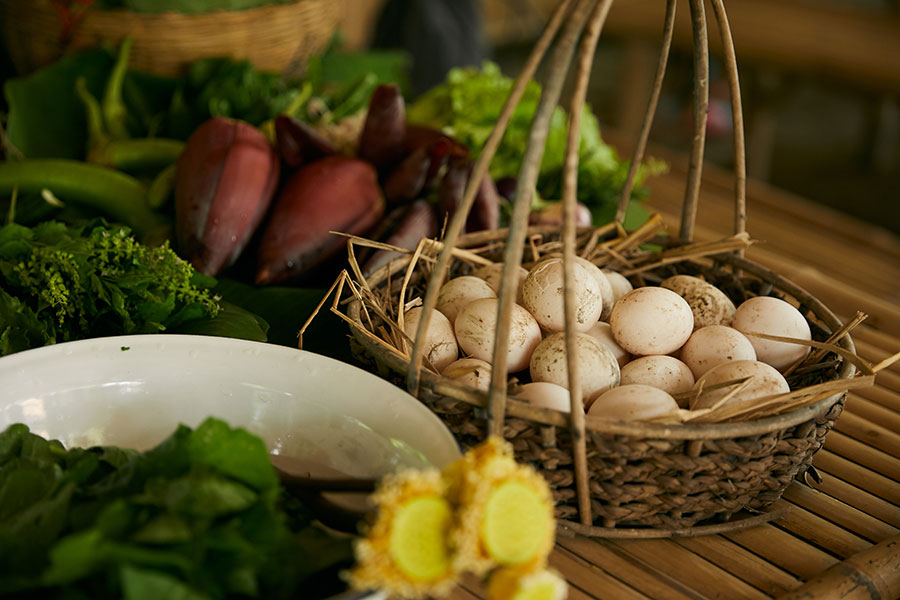
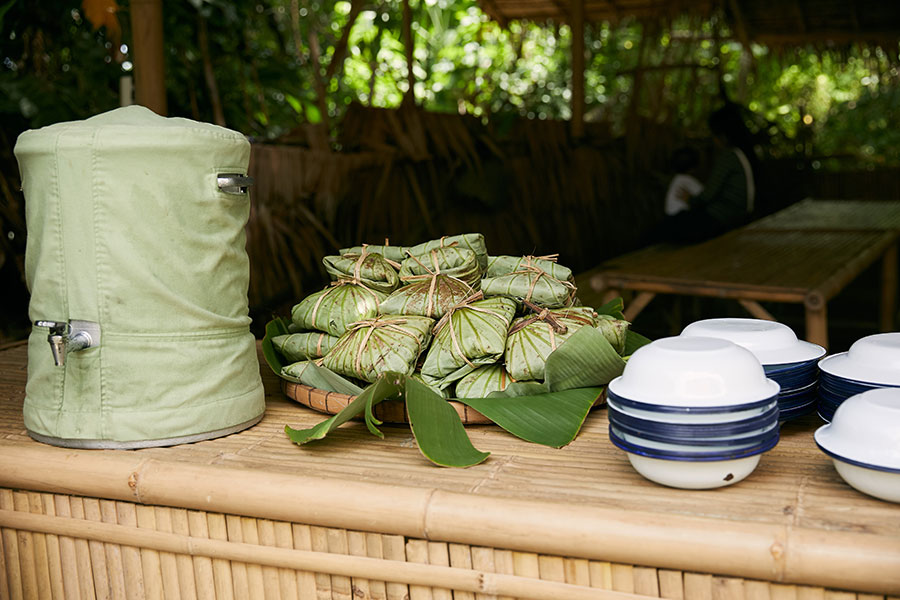
I think of our project as an organic social movement. It was never really a mission to go and help the farmers. We’ve always been clear that we want the farmers to become partners with us or with the other hotels and businesses, and for everyone to help each other. I think that’s more sustainable and we’re certainly seeing an enthusiastic response from the farmers, but also from the hotels and restaurants. From a business point of view, the project can be a marketing angle for them, but they can also actually help the environment by allowing farmers to stop using chemicals, and support the farmers, many of whom are in debt from using expensive agrichemicals. Through the project, businesses and suppliers are directly linked, which is more profitable for everyone. So, it’s good for business, good for the environment, good for the community and all at no initial cost. I think it’s catching on. If this social movement continues to grow, it could actually benefit the Thai tourism industry as a whole, as well as the economic situation, not to mention the environment.
Inspired? We are. And we’re so excited to have the team from Suan Sampran at our side at ASAI Bangkok Chinatown. Besides the 224 compact and contemporary rooms, the communal zone with its workspace, chill-out area and bar, the new hotel is going to have a pop-up restaurant with a seasonal farm-driven menu. Our chefs will be able to use ingredients fresh from the on-site organic garden. That’s where Arrut comes in and he says they plan to start with baby vegetables like morning glory and sunflowers, which can be used for salads and smoothies, as well as herbs like fresh mint and basil. We asked Arrut if he’s much of a chef. “I haven’t cooked since university, except for the odd smoothie,” he admitted, “But I love going out for a good meal.”
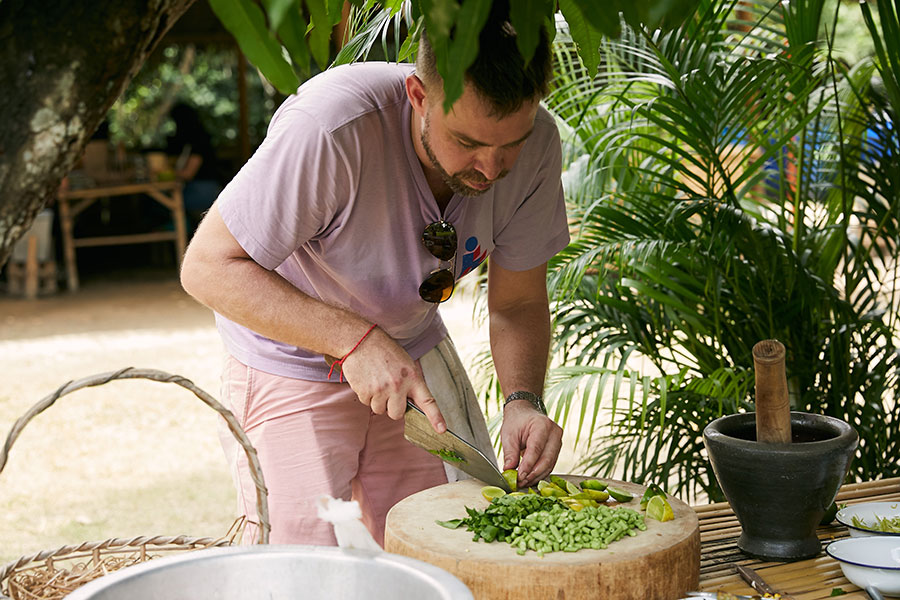
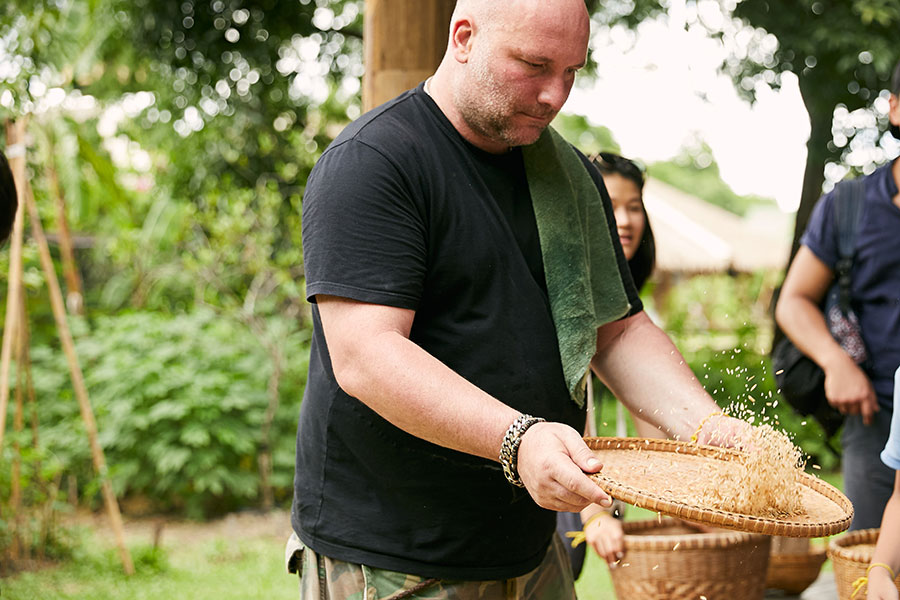
Luckily, he’s not in charge of the kitchen at ASAI Bangkok Chinatown, and our chefs are looking forward to welcoming him (and you) for some fresh, tasty organic meals very soon.
Go and visit Arrut in Suan Sampran for all your quality food needs and weekend getaway.
